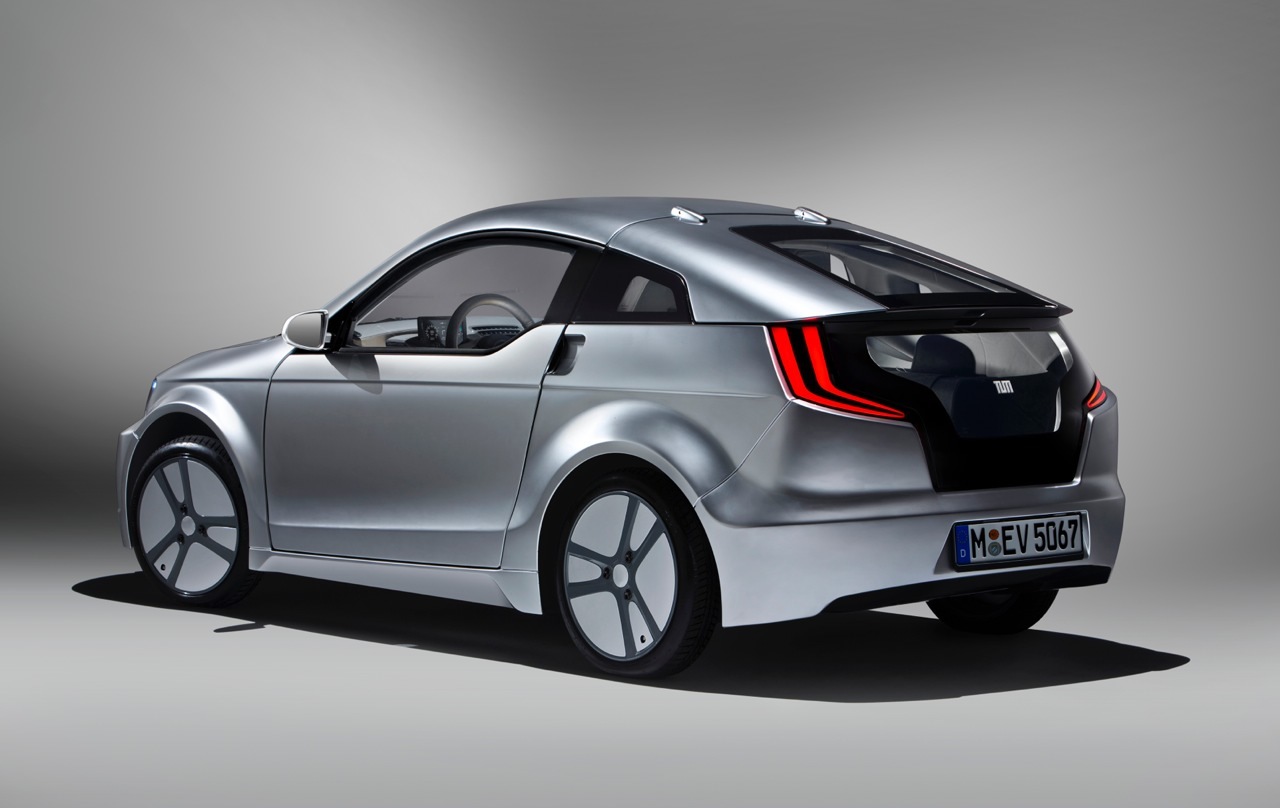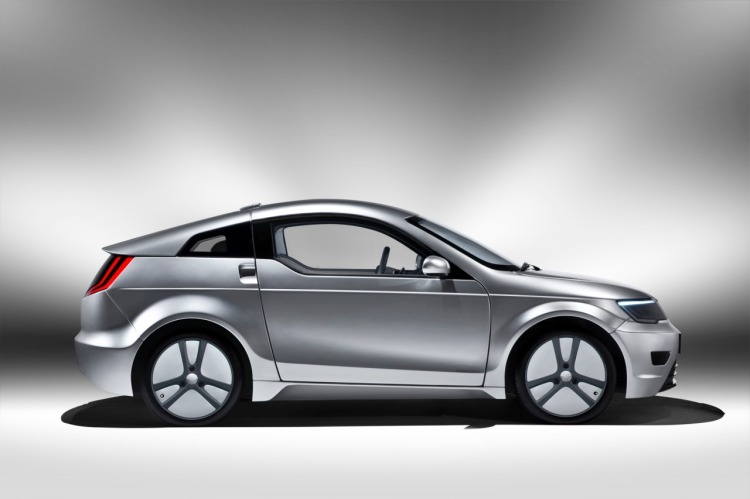Technical University of Munich (TUM), BMW, Daimler, TUM scientists and a consortium of industry participants unveiled today the Visio.M EV concept.
The concept is built upon the lightweight philosophy, including an all-plastic design of the car’s windows. The windows are made of LEXAN resin, a polycarbonate (PC) material, and coating technologies from SABIC.
The overall weight of the car is kept to a minimum therefore increasing the driving range and energy efficiency. The PC sheds about 29 pounds adding two miles or range.
PC resin has better thermal conductivity compared to glass so the air conditioning system can be more efficient. According to SABIC’s computational fluid dynamics analysis, an extra 9-10 miles of range, in fact. Without the battery, this concept weighs just 992 pounds.
The lighter weight of the PC windows contributes to a lower center of gravity, which tends to have a favorable effect on the vehicle’s handling and stability.
READ ALSO: BMW i3 Lightweight Construction
“A significant share of an EV’s energy consumption depends on its weight,” said Stefan Riederer, BMW Research & Technology. “A low vehicle weight allows for smaller and lighter battery designs, in addition to lighter designs of the electric motor, the chassis and other components. The weight savings that we were able to achieve across our EV concept, including the significant drop in weight from the windows with SABIC’s materials and development support, allowed us to significantly reduce the amount of energy required to move the car and meet the design intent of the vehicle.”
The EV features a 15kW electric motor and a weight of 450 kilograms (without battery), standard requirements that allow the vehicle to meet the new European regulatory category L7e (heavy quadricycles).






































































